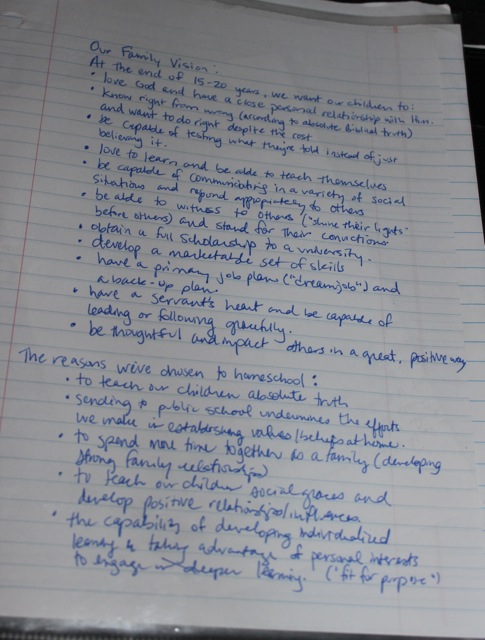Rhetoric: the art of speaking or writing effectively
When we first started homeschooling, we read Debra Bell’s Ultimate Guide to Homeschooling and felt compelled to write down our vision for homeschooling our three boys.
Among other things, our family vision stated that at the end of 15-20 years, we want our children to…
- love to learn and be able to teach themselves
- be capable of testing what they’re told instead of just believing it.
- be capable of communicating in a variety of social situations and [to] respond appropriately to others.
- be able to witness to others (“shine their lights” before others) and stand for their convictions.
- be thoughtful and impact others in a great, positive way.
But how to get there…? We had no real idea. No direction. Just hopes and dreams of what could be.
When we first heard of classical education, we joined a classical homeschool group simply because we were seeking a way to connect with others after our move to Tennessee. It was not until later that we realized this could be a way for us to get from Point A [1st grade arithmetic and phonics] to Point B [the bullet points listed in the above photo]. It gave us an avenue for fulfilling our vision!
About Classical Education
“What do Shakespeare, actors, newspapers, jazz, and communism all have in common?”
At one time, I would have stared blankly into space instead of seeking the answer to such a question [after all, I’m not “naturally gifted” in any of these areas!]. But after a few years of homeschooling my children myself, this question intrigues me. What do these seemingly unrelated topics have in common? As you learn to reason and discuss as a family, you’ll start to catch a glimpse of the fulfillment of a grand vision we are awaiting as we sow simple seeds of learning in our children’s hearts and minds.
These rhetorical skills that we learn in our classical learning endeavors – to express ourselves in different mediums as we gain understanding through discussions of how all things are interrelated – does not mean we will be experts in all fields! I am not naturally gifted in the area of rhetoric (which is obvious from my writing), but my rhetorical skills have improved by the dialectic discussions I’ve pursued with other homeschooling parents and with my own teenage children. The local and global community of classical educators and the overall vision and structure of our classical pursuits (aided through reading books such as Consider This and The Liberal Arts Tradition) allows our family to strengthen these areas as it exposes us to opportunities. That is not to say that this is the only avenue for attaining our goals! But classical education has connected us with ways in which our family can attain those goals, much better than we would have if we were trying to do this the way we were taught.
[To extend this thought even further: I never pursued art, but I am strengthening my artistic skills now that I am part of a community of homeschool moms who believe that anyone can learn anything and teach it to another. That in itself doesn’t mean I will ever become a master artist, but it does help me to more effectively express myself in that medium and to appreciate art and how it is used to glorify God.]
Classical education offers opportunities to hone the skills of rhetoric as can be seen in this fascinating video of middle and high school students discussing Julius Caesar.
For our children to choose to have these conversations with one another – to hone their skills in thinking and articulating their thoughts – to have mentors that encourage thoughtful discussion as students arrive at absolute truth – that is what our family is aiming for. And it’s something that our family enjoys together as my husband and I mentor our own children.
About Abraham Lincoln
Edward Everett, an American politician and orator of the 1800s, was the main speaker at Gettysburg whose two-hour oration preceded Abraham Lincoln’s brief Gettysburg Address.
In a letter to Lincoln following that famous event, Everett wrote, “I should be glad if I could flatter myself that I came as near to the central idea of the occasion in two hours as you did in two minutes.”
This gift of words… this ultimate gift of rhetoric… to say so much in the few words we speak… to be of service to others for the glory of God. It’s what we’re aiming for, is it not?
About the Power of Words
I have seen this short video in the past, but as I thought about the gift of rhetoric, it took on new meaning.
“Change your words. Change your world.”
Our words have great impact on others.
Our words matter.
In the beginning was the Word….
And God said…
How can I even wrap my mind around the importance of words?
The reason we lean towards a classical approach to learning is not because of the memory work. It’s not because of the curriculum we’ll use in high school. It’s because of the vision of where we are headed.
It’s this gift of rhetoric that I feel I lack.
It’s this gift of rhetoric that I want my children to be equipped with as we launch them into the world.
It’s this gift of rhetoric that reveals God’s love for others in ways beyond that which we can imagine.
This is what every member of our family is aiming for as we struggle to reclaim the Liberal Arts in our own education as we attempt to teach and equip the next generation for God’s glory.
Do you have any thoughts you’d like to share? We’d love to read what you have to say! Feel free to comment!


